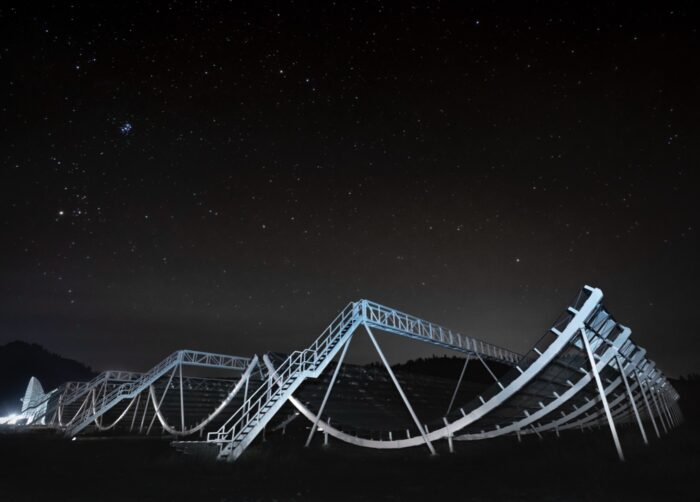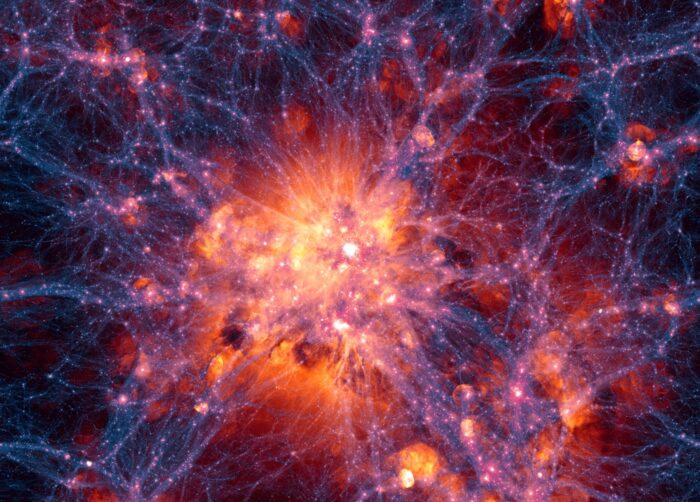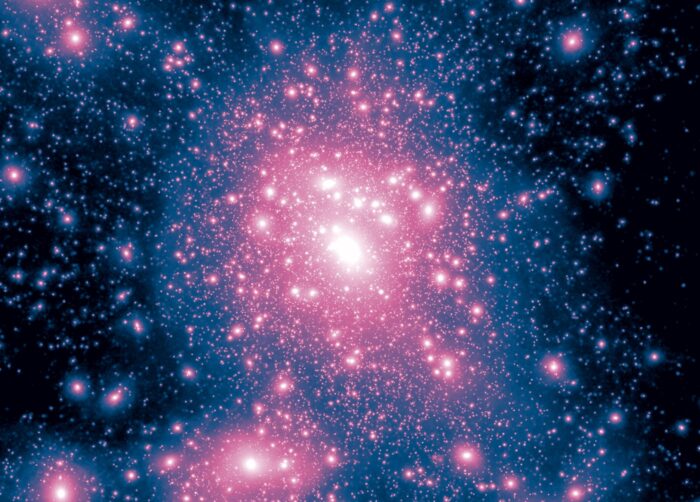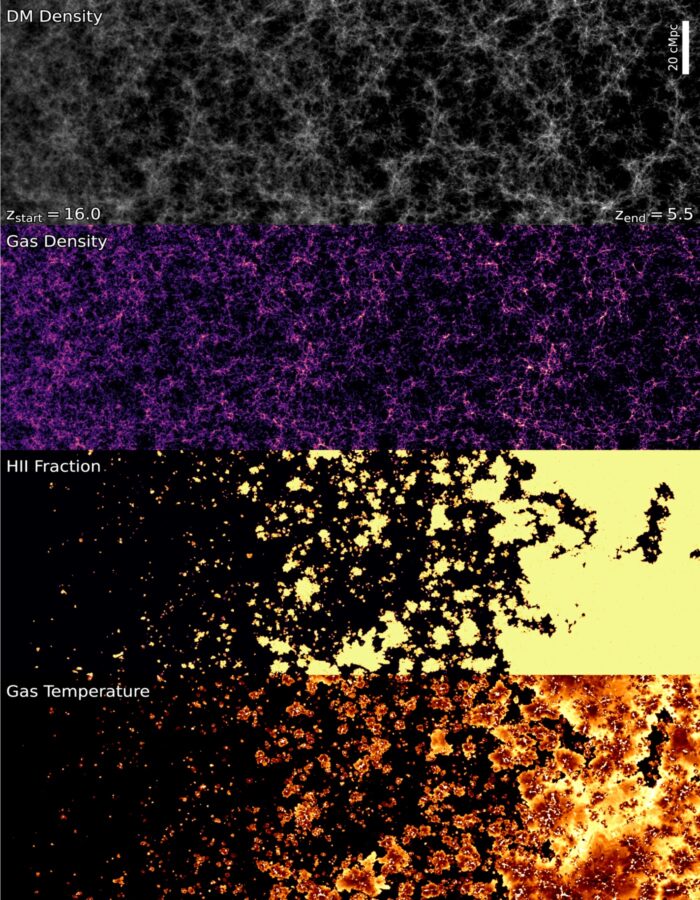Cosmology

Cosmology is the scientific field dedicated to understanding the origin, evolution, and fate of the universe. It explores the fundamental questions surrounding space, time, matter, and energy on a cosmic scale.
Researchers investigate the Big Bang theory, studying the early moments of the universe and the formation of galaxies and stars. Through observations, theoretical models, and simulations, cosmologists uncover the mysteries of dark energy and dark matter, which play crucial roles in shaping the cosmos.
Among the key questions that cosmologists aim to answer are:
- What are the conditions of the early Universe briefly after the Big Bang?
- What is the nature of dark matter and dark energy?
- How did the first stars and galaxies form?
- How do large-scale structures in the Universe emerge?
- How has the Universe been reionized?
Scientists at MKI study these questions using different methods ranging from detailed theoretical modeling to large-scale supercomputer simulations to detailed large-scale observations and surveys.
At MKI, researchers are involved in the following cosmology research areas:
The Synoptic Radio Lab
Prof. Kiyoshi Masui’s Synoptic Radio Lab works with wide-field, radio-wavelength sky surveys to establish new ways to observe the Universe. These include developing the technique of hydrogen intensity mapping for rapidly surveying large volumes of space, and exploiting the recently-discovered phenomena of fast radio bursts (FRBs) as probes of the Universe’s contents on large scales. This work includes creating digital instrumentation for radio telescopes, developing algorithms for analyzing observational data, and making theoretical predictions for the signals we should be looking for. Currently, the lab is focused on the CHIME Telescope, its fast transient detection instrument CHIME/FRB, and the next-generation digital survey telescope CHORD.

The Canadian Hydrogen Intensity Mapping Experiment (CHIME). A radio telescope composed of four cylindrical reflectors, CHIME’s unusual design allows it to map out the full northern sky each day.
Credit: Andre Renard
Large-scale cosmological simulations of galaxy formation
Prof. Mark Vogelsberger and his research group are developing the largest supercomputer simulations to model in great detail the growth of galaxies and the large-scale structure of the Universe using numerical methods. The simulations employ state-of-the-art methods to model dark matter, dark energy and baryonic physics in the Universe. The research focuses on exploring the early and late Universe.

Large scale projection through the Illustris cosmological simulation volume at a redshift of zero (current day), centered on the most massive galaxy cluster. Shows dark matter density overlaid with the gas velocity field. Credit: Illustris Collaboration

Dark matter annihilation radiation map of the most massive galaxy cluster at a redshift of zero (current day). This cluster has over 65 million dark matter particles and 16,937 resolved substructures. Credit: Illustris Collaboration

Evolution of simulated properties in the main Thesan run. The time flows from left to right. The dark matter (top panel) collapse in the cosmic web structure, composed of clumps (haloes) connected by filaments, and the gas (second panel from the top) follows, collapsing to create galaxies. These produce ionising photons that drive cosmic reionization (third panel from the top), heating up the gas in the process (bottom panel). Credit: THESAN Collaboration
Fundamental laws of nature
Prof. Alan Guth’s research has centered on the application of theoretical particle physics to the early universe: what can particle physics tell us about the history of the universe, and what can cosmology tell us about the fundamental laws of nature?